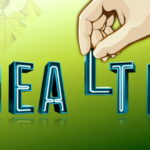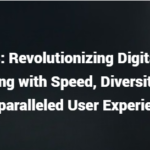
Healthcare grants play a pivotal role in the advancement and accessibility of medical services, research, and innovation. By providing the necessary funding, these grants enable healthcare providers, researchers, and organizations to tackle pressing health challenges, develop new treatments, and improve patient care. The landscape of healthcare grants is diverse, encompassing a wide range of funding opportunities designed to support various projects and initiatives within the healthcare sector. Understanding the nuances of healthcare grants, including eligibility, funding priorities, application processes, and finding opportunities, is crucial for potential applicants. This article aims to demystify the process, offering a comprehensive guide to navigating the world of healthcare grants in 2024.
Eligibility for Healthcare Grants

Healthcare grants are available to a broad spectrum of entities, each with specific eligibility criteria defined by the grantor. Generally, nonprofit organizations, educational institutions, government agencies, and sometimes for-profit entities, particularly those focusing on healthcare innovation and research, can qualify for these grants.
– Non-profit organizations: These include hospitals, community health centers, and public health organizations. They must typically demonstrate a clear commitment to healthcare improvement and have a track record of managing funded projects.
– Hospitals and research institutions: Eligibility often requires accreditation, a strong research proposal, and a team capable of executing the proposed project. Grants can support clinical trials, public health initiatives, or infrastructure improvements.
– Individuals: Some grants support healthcare professionals or researchers pursuing specific projects or continuing education in fields critical to healthcare advancement. Follow the link below to learn more about such grants: grantsforindividuals.info
Understanding the specific eligibility requirements of each grant is the first step towards a successful application. This may involve demonstrating organizational capacity, project feasibility, and alignment with the grantor’s objectives.
Common Funding Priorities

The priorities for healthcare grant funding are dynamic, often reflecting the federal budget, initiatives of the Department of Health and Human Services, and presidential directives for the year. These priorities can include a broad spectrum of healthcare concerns, ranging from healthcare information technology and health professional education and training to service delivery enhancements aimed at eliminating disparities. Chronic disease management, preventative care, patient safety, and quality improvement also stand as central pillars of funding focus. In recent years, notably due to the pandemic, there has been a significant emphasis on emergency preparedness and disaster recovery, showcasing the government’s adaptability to current health crises.
The year 2022 marked a substantial expansion in funding for sectors such as public health, substance abuse, mental health, rural health, health disparities, workforce development, and emergency preparedness, response, and recovery. Noteworthy initiatives funded include the establishment of the 988 hotline for mental health support, the enactment of new gun control laws with a strong emphasis on mental health, and strategic efforts to improve and recruit the healthcare workforce. These initiatives were highlights of the 2022 federal budget, reflecting a strategic response to evolving health needs.
For 2023, while the final grant funding priorities are pending, it is anticipated that many of these initiatives will continue to receive support. This continuation underscores the commitment to addressing ongoing public health challenges and enhancing the healthcare infrastructure.
In the past year, the government also initiated the distribution of stimulus grants to aid healthcare providers grappling with the pandemic-driven health crisis. Initially, these stimulus grants were automatically deposited into accounts of most healthcare providers based on Medicaid billing, without the need for a formal application process. As the situation evolved, providers were required to submit proposals, albeit through a simplified process compared to traditional grant applications. This approach facilitated quicker access to essential funds, helping to mitigate the immediate impacts of the pandemic on healthcare delivery.
Applying for Traditional Grants

Successfully applying for traditional healthcare grants requires a strategic approach, focusing on projects rather than products. For instance, if the goal is to implement telehealth and remote patient monitoring technology within a rural health development initiative, applicants might consider grants like the Rural Health Network grant. It’s essential that proposals clearly articulate how the technology acquisition fits within the broader project objectives. The emphasis should be on securing funding for the project’s operational aspects, with the technology serving as a component of the project’s success, rather than the end goal itself.
Collaboration and communication within the organization are also critical. Ensuring alignment among all stakeholders including finance, IT, administration, department heads, and the grants team (if one exists) is paramount. This alignment prevents overlapping grant applications or purchasing decisions that do not align with the end-users’ needs.
Attention to critical dates and deadlines cannot be overstated. While foundation, state, and federal grants may offer a more straightforward application process, applying for grants from entities like the National Institutes of Health (NIH) or the Centers for Disease Control and Prevention (CDC) is more complex and time intensive. These applications demand a deeper level of expertise and a more substantial time commitment for preparation.
Furthermore, applicants should be aware of cyclical grants, which are available at regular intervals like annually, biennially, or every few years. For these, starting the application process early is advantageous. Even if an opportunity is missed, understanding the cycle allows for preparation and submission in the next cycle. This proactive approach maximizes the chances of securing funding, enabling applicants to align their projects with the funding body’s priorities and submission timelines effectively.
Finding Funding Opportunities

Locating healthcare grants requires strategy and diligence. Key sources include:
– Government Databases: Websites like Grants.gov in the United States offer comprehensive listings of available government grants.
– Foundations and Medical Societies: Many private foundations and professional societies offer grants focused on specific areas of healthcare and research.
– Online Platforms and Networking: Leveraging specialized online platforms and engaging with professional networks can uncover lesser-known opportunities.
Staying informed about grant opportunities involves regular research and networking, ensuring alignment between your project and the grantor’s priorities.
Conclusion
Navigating the world of healthcare grants is a complex but rewarding endeavour. Understanding eligibility criteria, aligning with funding priorities, meticulously preparing applications, and diligently searching for opportunities are all critical steps in securing funding for healthcare projects. While the process can be challenging, the potential to advance healthcare research, improve patient outcomes, and address critical health issues makes it a worthwhile pursuit. With the right approach and resources, healthcare organizations, researchers, and professionals can find the support they need to make a significant impact in the field.
Hopefully, this guide equips potential applicants with the knowledge and strategies necessary to navigate the healthcare grants landscape successfully. By staying informed, prepared, and proactive, applicants can enhance their chances of securing the funding necessary to drive innovation and improvement in healthcare.






